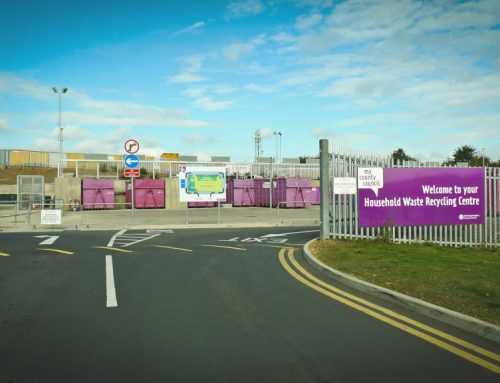by Steve Watson
As the only major party openly sceptical of humans’ role in climate change, UKIP were never likely to pitch their manifesto to win over the environmentally minded voter. It’s hard to imagine any other party retaining an Energy Spokesman who took to Twitter earlier this year to urge his followers to “strike a blow against Climate Hysteria” by turning on their lights during Earth Hour.
The fact that a great deal of UK environmental legislation stems from European directives further sets UKIP at odds with the green agenda. Of course, if UKIP were to win power and achieve their aim of extricating the UK from the EU, there would be nothing to stop their government from adopting its own, independent ambitious environmental policies. Left to their own devices, then, what actual environmental policies would UKIP implement?
Energy and Climate Change
Energy generation is the environmental issue about which UKIP has the most to say; however, its policies aren’t designed with the environment in mind. Instead, their concern is to make energy cheap and plentiful. They would repeal the Climate Change Act 2008, and promise to scrap all green taxes and levies along with subsidies for renewables. Instead, they would meet the UK’s energy needs through investment in fracking, re-establishing the coal industry and reviving fossil fuel power stations destined for the chop under the EU’s Large Combustion Plant Directive.
UKIP claims it will respect existing renewables contracts, but will only invest new money in technologies that can function economically without the aid of subsidies. They claim that only hydroelectricity meets this test, ignoring predictions that onshore wind power will reach grid parity in the UK as early as 2021, and the view of investment bank Citigroup (not a hotbed of green activism) that the same will be true for solar PV by 2018. To cut off investment when these technologies are so close to no longer requiring subsidy seems short-sighted.
UKIP’s enthusiasm for fracking is more widely shared by other parties, but in viewing shale gas as a solution to energy security, the party does not acknowledge concerns regarding the size of the UK’s technically recoverable shale gas reserves – or the potential costs of safely extracting it in a densely populated island.
UKIP’s claims regarding the extent to which green policies are driving up energy bills are of course disputed. Their manifesto doesn’t discuss the impact of scrapping government support for energy efficiency measures, which DECC estimates will result in households using around 14% less gas and 29% less electricity by 2020 than they would have otherwise, saving around 7% on energy bills. Nor do they take account of the non-climate environmental costs of continuing reliance on fossil fuels, such as the health impacts of air pollution.
Green Grade: F. Not a trace of green intent to be found. The focus is on policies intended (though far from guaranteed) to bring lower bills and fossil fuel-based energy security, without regard for environmental consequences.
Transport
The transport section of the manifesto sees a rare expression of concern for the environment in the face of the damage that may befall it from the planned High Speed 2 railway. The nature of the damage the party is concerned about isn’t stated; it can’t be carbon emissions, and it probably isn’t energy use because that doesn’t seem to be an environmental issue for UKIP, so it’s probably the impact on the countryside in Buckinghamshire, Warwickshire and elsewhere along its route that concern them. While this certainly is an environmental impact, UKIP’s opposition seems to arise principally from their assessment of the financial costs and benefits of the scheme rather than a detailed appraisal of its environmental impacts.
Whatever their environmental concerns regarding HS2, they don’t extend to airports. UKIP would reopen Manston airport to provide more runway capacity for London and the South East. There would be no new money for road building, but UKIP would get rid of road tolls wherever possible, and opposition plans for pay-as-you-go charging on roads. They would cut the age at which ‘classic’ cars qualify exemption from Vehicle Excise Duty from 40 years to 25, potentially keeping older, less efficient cars on the road. The environmental impacts of these measures on CO2 emissions and air quality don’t receive a mention.
Green Grade: E. Well, at least they mention the environment in connection with transport…
Land Use
There are two sections covering land use in the manifesto: housing and farming. UKIP states that no-one wants to see green fields concreted over, and commits to “preserving our precious countryside”.
To meet the UK’s housing needs – which would grow less quickly than otherwise, due to restrictions on migration – UKIP would introduce a statutory duty on local authorities to bring long-term empty homes back into use, and relax planning restrictions on converting commercial buildings for residential use. They would incentivise developers to build on brown field sites, and charge the Environment Agency with establishing a National Brownfield Site Register and carrying out remediation assessments. A clear focus on remediating and reusing brownfield sites is clearly environmentally preferable, but UKIP provides no analysis of whether this will allow housing to be built where it is needed, or what they will do if brownfield sites prove insufficient.
The farming section promises to match-fund local authority grants towards ‘rural capital projects’ such as creating wetlands which enhance the environment or help recovery from environmental disasters. It also promises to keep or replace those regulations and directives necessary to protect the environment, while abolishing unnecessary ones. However, there’s a worrying lack of detail on what regulation is considered “necessary”.
Green Grade: C. Encouraging commitments on brown field building and the rural environment, but little clarity about where environmental regulation might be cut back.
Conservation
It is no surprise that UKIP wants to conserve UK heritage, and the manifesto makes this an economic issue related to tourism. Environmentally, this means altering planning legislation to include a “presumption in favour of conservation” and “ensuring tax and planning polices support […] the countryside”. While protection of the countryside would be welcome, there’s no indication of what exactly the criteria for conservation would be or what policies are contemplated. UKIP’s picture of the countryside seems a little misty, and rather more impressionist than modern realist.
There’s also a proposal to enforce “no-take zones” in UK seas to encourage replenishment of fishing stocks, which comes as part of a plan to withdraw from the EU Common Fisheries Policy and establish a 12 mile fishing zone around the UK coastline for our sole use (no pun intended). Few would disagree that current fishing policy fails to protect marine habitats and wildlife, but with a focus on fishing rather than fish it’s not clear that UKIP’s aim is conservation.
Green Grade: D. The few positives seem to arise accidentally from wider economic and anti-European policies.
Waste and Resources
UKIP has a one sentence waste policy: “Reinstate weekly bin collections where local communities have lost them and want them reinstated.” Perhaps the lack of detail reflects the simplicity of the issue in the party mind: recycling targets are just another example of EU folly, and once free of Europe we can remove restrictions on residual waste and happily go back to burying everything in our sovereign ground.
However, UKIP also promises to give local people “the final say on major planning decisions […] through the use of binding local referenda”. While incinerators and wind farms appear on a list of potentially unwanted developments no mention is made of landfills, which historically at least residents haven’t exactly been crazy for. An increase in residual waste arisings would require an increase in residual disposal infrastructure, exactly the kind of developments that wouldn’t fare well in local referenda.
There is also a promise to ‘keep Council Tax as low as possible’, which might lead us to consider where the extra funds needed to reinstate weekly residual collections might come from. Perhaps UKIP plan to abolish the Landfill Tax, a tool to meet EU landfill diversion targets, and thereby free up money that had previously been spent on disposal. However, unless UKIP could dramatically improve local authority finances, it might take legislation to make councils prioritise weekly bin collections over other services they could fund with disposal savings.
Green Grade: F. A one-line waste policy which appears destined to run into conflict with other UKIP priorities and entirely fails to address issues such as resource security.
Overall
While UKIP would at least retain some environmental legislation, there are few areas where they would strengthen it. For UKIP, ‘the environment’ seems to consist of a romanticised countryside to be protected and a source of raw materials to be exploited. It’s mentioned where it suits their agenda (HS2, wind farms), and ignored where it doesn’t (fracking, landfill). Air and water quality don’t fall within their view of the world: in a colour scheme dominated by red, white and blue, there’s very little room for green.
Green Grade: E minus
Read our other manifesto analyses:







Leave A Comment